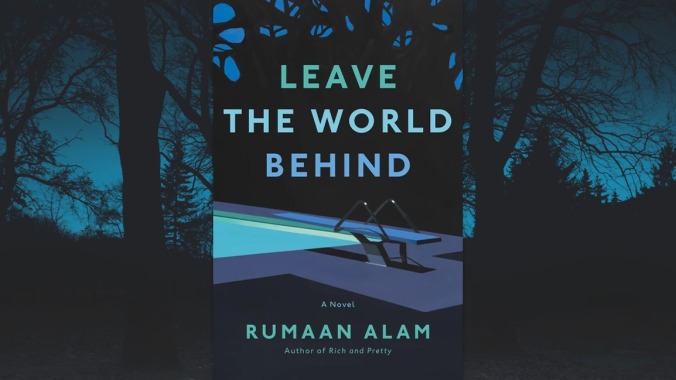A family’s vacation is cut short by crisis in Rumaan Alam’s Leave The World Behind

It’s funny how the time of day can change the meaning of a knock. An unexpected rapping on the door during daylight hours is usually the work of a neighbor or door-to-door evangelizer—the warning sign of an imposition. A knock on the door in the middle of the night is something more fraught and ominous. The late-night visitor—their motives unclear, their timing portentous—is an enduring staple of suspense fiction and horror. What makes them so unnerving isn’t just that their presence is a violation of the peace and quiet of your evening; it’s that you have to choose whether to invite them in. You’re asked to gamble on your faith in humanity and hope that it will be rewarded.
That nocturnal knock on the door comes early in Leave The World Behind, the latest novel by Rumaan Alam. Alam spends the first 30 pages sketching out a picture of domestic tranquility before that knock disrupts it like a bowling ball landing in a pond. Amanda and Clay, a white, upper-middle-class (she’s a marketer, he writes book reviews for prestige publications) couple from New York City, bring their kids, Archie and Rose, out to a woodland rental home in Long Island to get away from it all. Their vacation bliss—the kids exploring the woods and gorging on hamburgers, the parents fucking and getting buzzed after-hours—is interrupted when an older Black couple, Ruth and G.H., knocks on the door seeking sanctuary. Claiming to be the owners of the house that the family is renting, the strangers say that a blackout has plunged New York City in darkness and the power is out across the East Coast—everywhere except for this remote house in the woods.
His third book finds Alam in new thematic territory. While the author continues to explore themes of family, parenthood, race, and the compromises of marriage that his previous books handled so gracefully, Leave The World Behind showcases a darker side to his writing. This stylistic shift comes early in the book, with its frequent allusions to the decay of nature: He describes Rose and Archie as having “pink skin splitting like summer fruit,” and explains that the rental’s fence is there to keep deer from falling into the pool where they would “drown, swell, explode, a horrifying mess.” It’s the kind of book where a wife can, in the same paragraph, think about her enduring love for her husband and also imagine being completely fine moving on if he died. Impending doom hangs over Alam’s prose like power lines—their humming ever-present even during the book’s brighter, more contented chapters.
 Keep scrolling for more great stories.
Keep scrolling for more great stories.
